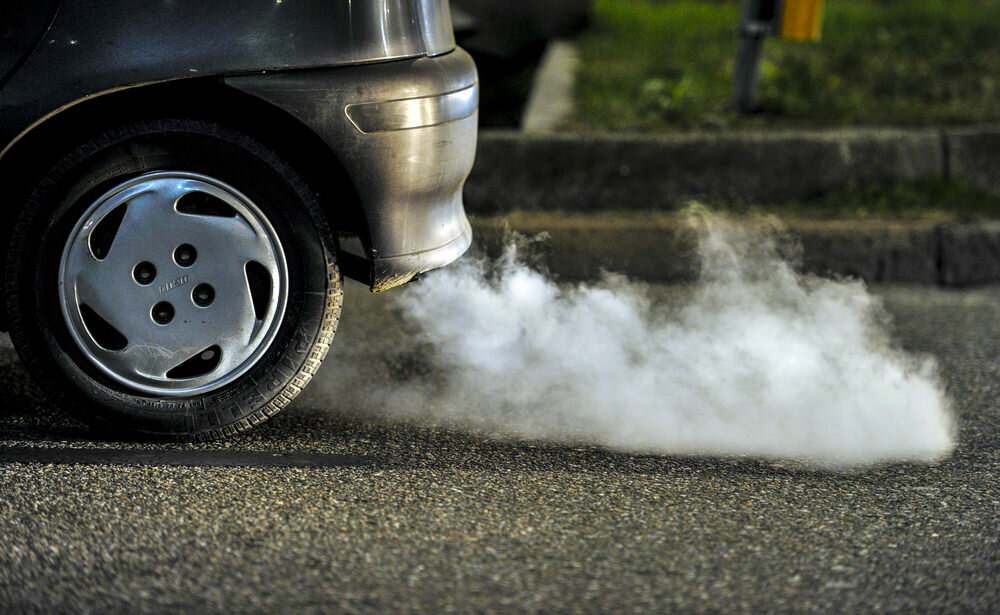DOE opposes production of diesel cars

TEHRAN – While an Iranian automaker has undertaken a study on manufacturing diesel cars, the Department of Environment (DOE) voiced objection toward production of diesel engines owing to the amount of toxic emissions they produce.
Diesel fuel contains slightly more carbon than petrol, however, it involves toxic emissions which threaten public health, during fuel combustion in an engine nitrogen is released and combines with oxygen atoms to create nitric oxide (NO), which is further combined with oxygen and create nitrogen dioxide (NO2), both are referred to together as oxides of nitrogen (NOx).
Deputy environment chief, Masoud Tajrishi said that NOx gases react to form smog and acid rain as well as being central to the formation of particulate matter (PM) and ground level ozone, both of which are associated with adverse health effects.
He went on to say that long-term exposure to nitric oxide and PM can significantly increase the risk of respiratory problems along with cancer.
So, we completely oppose the production of diesel cars, and sent the Ministry of Industry, Mine and Trade a letter of objection in this regard, he added.
Pointing to an investment of €500 million on designing diesel vehicles, he said that each product needs assessment studies to determine whether the project is worth implementation or not, therefore, spending money should not necessarily lead to production.
Although, the DOE is adamantly opposing the project, the government might issue the permit, he lamented, implying that “we must consider whether the project benefits the public in the long run.”
Car manufacturing companies claim that diesel cars are not allowed to enter urban areas, but it is impossible to ban these cars from the cities due to their exact similarity to petrol vehicles, he lamented, adding, recognizing these cars is not easy.
He further expressed hope that the government rejects the production project, as well.
Say goodbye to clear skies
Navab Hosseini-Manesh, an official with Tehran Vehicle Inspection Company affiliated to Tehran Municipality said that diesel cars have been banned in other countries due to emitting toxic pollutants since past 15 years, while we are investing on a project which has proved to be unsuccessful long before.
Currently, over 100,000 diesel vehicles are plying the capital’s roads which means that smoke amounting to 87 cubic kilometers is choking in the capital per day, he lamented.
According to the plans since the Iranian calendar year 1401 (March 2022), all the vehicles must meet Euro 6 standards to reduce levels of harmful car exhaust emissions, however, currently cars manufactured in Iran do not even meet Euro 2 emission standards.
He further regretted that there are 4 million cars moving across the metropolis of Tehran contributing to numerous days of unhealthy air quality, warning that once pollutant diesel cars join the capital’s fleet the pollution will soar.
Tehraners to breathe foul air by diesel-produced PM2.5
Mohsen Pourseyyed Aqaei, deputy mayor for traffic and transport affairs at Tehran Municipality also said that diesel engines produce PM 2.5, which is the major contributor to the capital’s pollution.
PM2.5 is particulate matter 2.5 micrometers or less in diameter. Particles in this size range make up a large proportion of dust that can be drawn deep into the lungs. Larger particles tend to be trapped in the nose, mouth or throat and cause respiratory, lung and even heart conditions.
Production of these engines will speed the pollution in Tehran, so it is unwise to issue licenses in this regard, he added.
Some countries are using diesel engine vehicles, where the PM 2.5 is not the major pollutant, he noted, adding, in countries with high PM concentration diesel cars must be banned.
He further called on the DOE and Institute of Standards and Industrial Research of Iran to precisely assess the project and make a conscious decision.
FB/MQ/MG
Leave a Comment